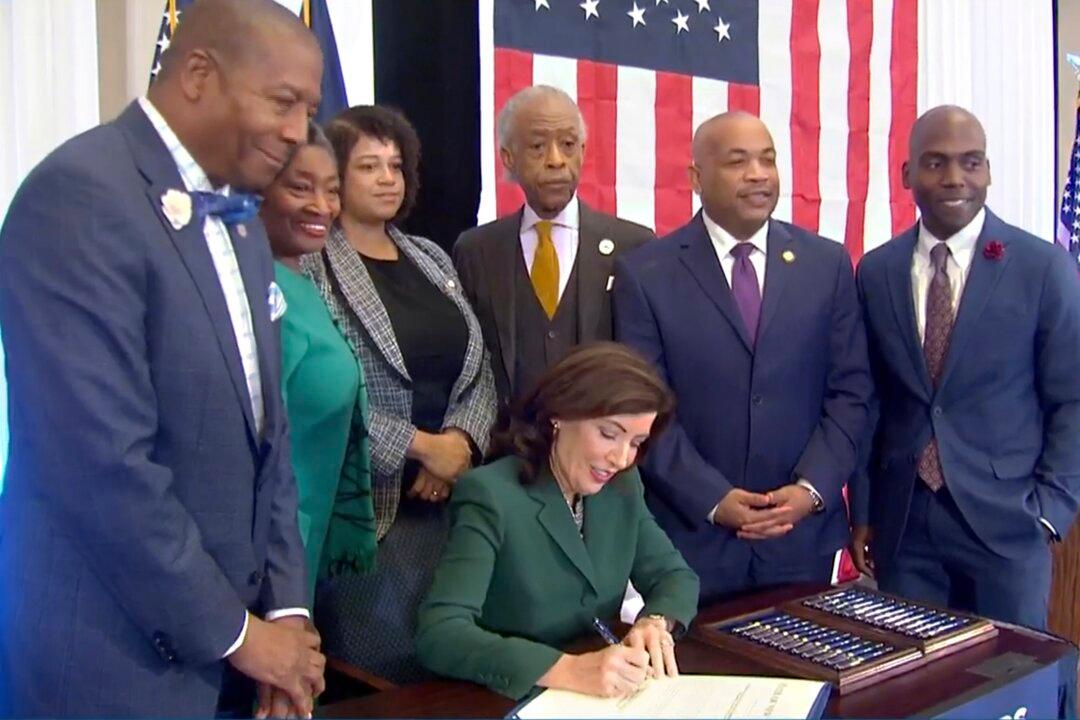A new commission is set to study possible racial reparations schemes for New York residents of African descent.
Democratic New York Governor Kathy Hochul signed a bill into law on Tuesday morning, that establishes the “Commission to Examine the Institution of Slavery, Subsequent Racial and Economic Discrimination Against People of African Descent, and the Impact on Living People of African Descent.” The commission will be tasked with studying the impacts of slavery and subsequent racial discrimination against ancestors of slaves and people of African descent, and make recommendations to address those impacts, including changes in law, and potentially financial compensation.





